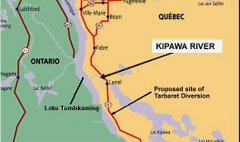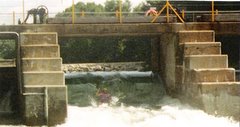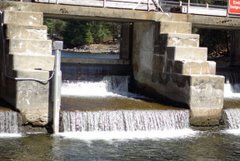
Mr. Peter Karwacki
kayaky@hotmail.com
Dear Mr. Karwacki:
I am writing in response to your correspondence regarding the Navigable Waters Protection Act.
Over the last two years, this government has taken some historic and unprecedented steps to protect our country’s natural treasures, including expanding the Nahanni National Park Reserve, creating the Lake Superior National Marine Conservation Area and protecting the Great Bear Rainforest. These actions demonstrate the importance that our natural surroundings have for all Canadians and our need to protect and preserve them for future generations.
It is because of our government’s support for environmental preservation that we are proposing to modernize the Navigable Waters Protection Act.
Many outdoor enthusiasts have contacted Members of Parliament asking how these changes might impact recreational boating, paddling and fishing. I want to assure you that these changes would not jeopardize the waterways that many Canadians have valued for generations.
Let me be clear about one point—if one can paddle down a waterway, that waterway will still be subject to the requirements of the Act.
This Act has remained largely unchanged since the 1880s. Over time, the interpretation of the law expanded to include waterways—such as drainage ditches and creeks—that no one would consider navigable. Under the existing law, it does not matter if it is the Northumberland Strait’s Confederation Bridge to Prince Edward Island or a nearly dry stream—both need the same approvals and both require the same scrutiny from inspectors.
Obviously, we should be focusing our efforts on projects that can pose real issues for boating and navigation.
The proposed changes would exempt certain classes of works and waters from having to receive approval under the Act. This would include works that do not impede navigation and waters that are not considered navigable. That way, inspectors can spend more time on projects that could impact boaters as opposed to reviewing minor projects that, when constructed, pose no threat to the safety of navigation.
The revised legislation also creates new enforcement provisions that would allow the government to fine individuals who violate the Navigable Waters Protection Act. As it stands now (as it has since 1882), the largest penalty that may be imposed under the current legislation is a $5,000 fine—an amount many consider to be ‘the price of doing business.’ The new legislation will impose fines of up to $50,000 per infraction per day—a serious and meaningful deterrent to non-compliance.
I also want to highlight that these proposed changes were brought forward only after consultations with stakeholders over the last number of years. In 2008, the Standing Committee on Transport, Infrastructure and Communities brought forward recommended changes to the Act, and I am pleased to say that the government has fulfilled every one.
By bringing forward these changes, it is my hope that all Canadians will be able to safely experience our nation’s natural and breathtaking beauty on our waters.
Thank you for writing.
Sincerely,
John Baird, P.C., M.P


























